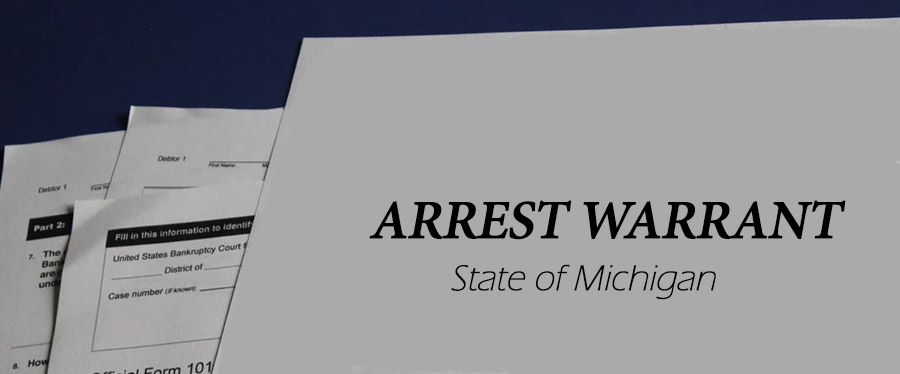The 4th Amendment Generally Requires the Police Secure a Warrant.
Police entry into a residence to make an arrest generally requires an arrest or search warrant. Failure to secure a warrant might result in dismissal.

The Power to Arrest Comes from a Statute But is Limited By the Constitution
The statutory authority to enter a residence to make an arrest is found in Michigan Compiled Law (MCL) 764.21. This law or statute applies when police have been refused admittance to a residence where the suspect is reasonably suspected to be located. It allows an officer to forcibly enter a residence to arrest a suspect with an outstanding arrest warrant. The law also permits forcible entry to arrest someone for a felony under certain circumstances. However, courts have restricted the statute’s use based on constitutional limitations. In situations where a law conflicts with the Constitution, the Constitution wins.
The warrantless break and enter rule in Michigan requires:
- an alleged misdemeanor
- with or without a warrant (as authorized by law)
- the suspect is believed to be inside
- announcement of the officer’s presence
- a request to enter that is refused
Felony Arrests With an Arrest Warrant
The police cannot indiscriminately break down the door to enter a residence just because they have an arrest warrant. In Payton v. New York, the U.S. Supreme Court held that a valid felony arrest warrant allows police to enter a suspect’s residence to make the arrest, but only when there is a good reason to believe the suspect is inside.
Without an Arrest Warrant
Unless exigent circumstances exist, the police may not enter a residence to make a warrantless felony arrest. This prohibition is the rule no matter who owns the residence and whether the suspect is inside. Examples of exigent circumstances justifying entry include “hot pursuit” and “significant and apparent danger” to the public or police.

Misdemeanor Arrest in a Residence
The Michigan Court of Appeals has held that Michigan law does not authorize entry into a residence without a warrant for a misdemeanor arrest. The only way the police can arrest someone for a misdemeanor is if the officer observes the crime. If the officer did not see the commission of the misdemeanor, his only option is to ask a city or township attorney or a state prosecutor to issue a complaint and warrant.
Arrests at Third Party Residences
When the person named in an arrest warrant is inside a residence owned by a third party, the rule is simple: Officers must obtain a search warrant or consent before they enter a home. The U.S. Supreme Court (Steagald v. United States) and the Michigan Court of Appeals (People v. Stark) have held that arrest warrants do not authorize entry into third-party residences – even when officers are certain the wanted person is inside.
“What if my rights were violated because the police did not have a warrant to enter my residence?”
If the police violated your rights, your attorney could do several things to help you, including filing a Motion to Suppress. Both Michigan and federal courts have consistently ruled that a violation of a person’s rights against unreasonable searches and seizures may result in the suppression of evidence. For example, if the police obtain evidence from the unconstitutional, warrantless entry into a residence, that evidence should be inadmissible at trial. Evidence unrelated to or did not result from the arrest would not get suppressed. If there is not enough evidence to proceed to trial after the judge throws out illegally obtained evidence, the prosecutor will ask the judge to dismiss the case.

“Can I get out on bond if I was arrested in a residence with or without a warrant?”
If you are arrested in a residence, with or without a warrant, you can get out on bond. If there was a warrant for your arrest, you are entitled to have legal representation at your arraignment. If you have no resources to hire legal counsel, the court will appoint an attorney to represent you. If you or your family have the resources to hire a retained criminal defense attorney, you can hire someone who will go the extra mile, like an attorney with LEWIS & DICKSTEIN, P.L.L.C., to get you the lowest bond possible. If law enforcement arrested you without a warrant, your lawyer might be able to raise several constitutional arguments in support of a Motion to Suppress and Dismiss.
“What if I’m arrested for extradition without a warrant?”
Someone in jail pending extradition is entitled to a fair, reasonable bond. The court will seldom advise the defendant that a bond is available. In fact, most lawyers and judges are unaware that Michigan law provides for a bond pending extradition. The Defense Team with LEWIS & DICKSTEIN, P.L.L.C., has successfully argued for a reasonable bond in multiple cases. We have the expertise to educate the court on the state of the law and provide the necessary information to convince the judge to order a reasonable amount for a bond. A fugitive apprehension team might enter a residence to arrest someone with an out-of-state warrant. Once the defendant gets released on bond, they would have to surrender voluntarily to the state that issued the warrant. Once they surrender, the Michigan court releases the bond money paid by the defendant.
“What do I do if there is a warrant for my arrest?”
If there is a warrant for your arrest, it is time to get some help. If you get arrested, the police officers will bring you before a magistrate or judge for arraignment on the warrant. The judge will set a bond, and you may have to post money before being released. In almost all cases, the bond amount is set at a lower amount when someone self-surrenders with a retained attorney. The defendant will likely get a higher bond if brought to the court in handcuffs. A bond’s primary purpose is to ensure the defendant shows back up in court. If someone self-surrenders, that person’s self-motivated presence in court is excellent evidence that they will return in the future. The Michigan Court Rules list various factors a judge must consider when determining the amount of bail. An experienced lawyer will know how to present the most persuasive arguments relative to each element. If the attorney presents all the correct arguments to the court, the defendant will have a good chance of getting a personal bond. A personal bond does not require any money and the defendant merely has to promise to return.

Defense Attorneys Experienced with the Suppression of Evidence if the Police Enter into a Residence Without a Warrant
The defense lawyers with LEWIS & DICKSTEIN, P.L.L.C. have extensive experience handling felony and misdemeanor cases and securing a reasonable bond. If you are subject to arrest on a warrant, call us today, and we will find a way to help you with fair and affordable legal fees. If it turns out that the police entered a residence without a warrant to make a misdemeanor or felony arrest, we will fight to suppress the evidence and get the case thrown out of court.
Call us today at (248) 263-6800 for a free consultation or complete an online Request for Assistance Form. We will contact you promptly and find a way to help you.













